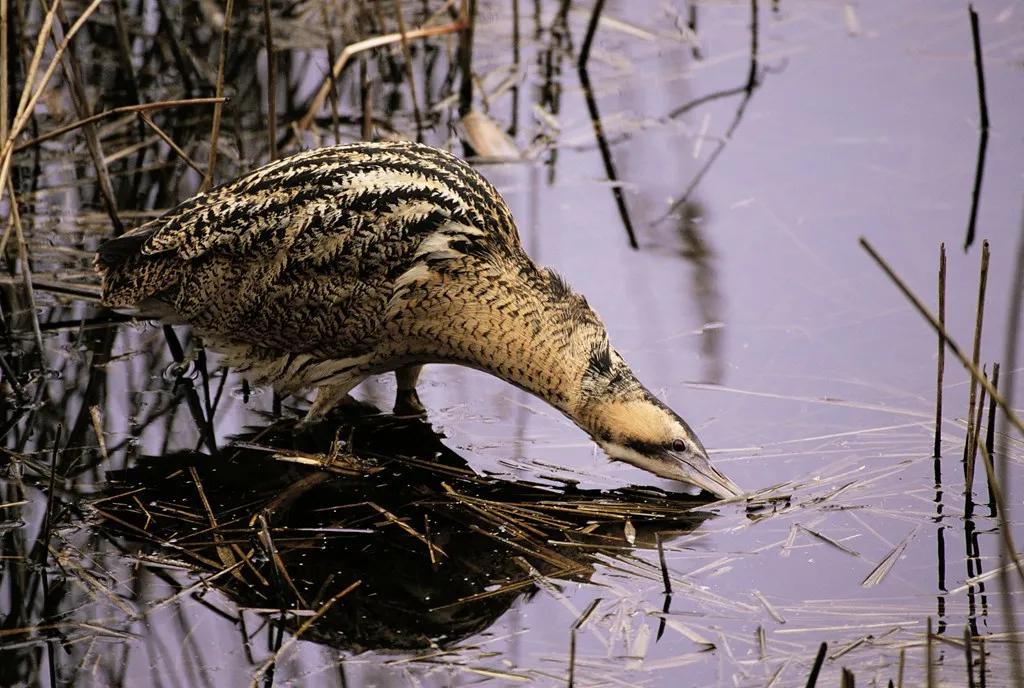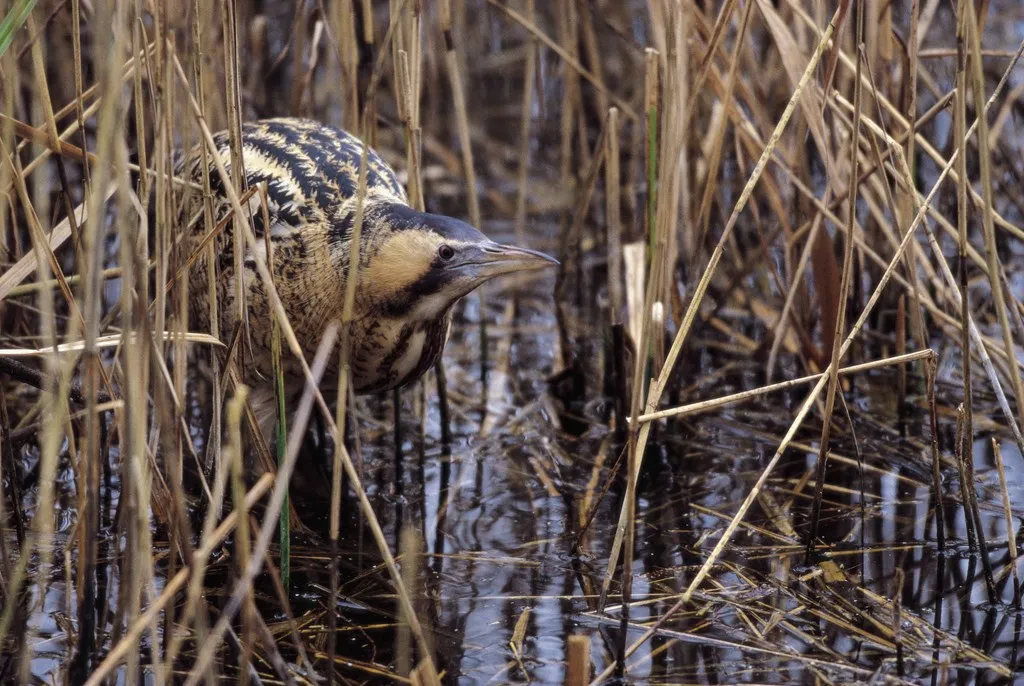The RSPB is celebrating record numbers of booming male bitterns, with 198 males recorded at 89 sites, up from 188 males at 82 sites last year.
A combination of targeted habitat restoration and the creation of legally protected Special Protection Areas (SPAs) has allowed numbers to increase.
“It’s a delight to hear their distinctive booming call echoing across the reedbeds every year as more and more bitterns are making new or restored wetlands their home,” says RSPB senior conservation scientist Simon Wotton.
The bittern is a secretive and extremely well camouflaged type of heron, famous for its distinctive booming call.

Having disappeared from Britain entirely during the 1870s, bitterns recolonised in the early 20thcentury. However, they have struggled since, with numbers dropping to just 11 males in 1997.
Following a study of bittern habitat requirements led by the RSPB, water levels have been raised and reedbeds expanded which has led to an increase in breeding success.
There is, however, concern that the number of protected areas is not adequate for rising numbers of bittern. Over 90 per cent of breeding bitterns were found in SPAs in the 1990, whereas this had fallen to 23 per cent this year, as individuals are forced into surrounding areas, leaving nests vulnerable to damage and destruction.
Despite plans to create new SPAs in response to a rising bittern population, the number hasn’t actually increased for 20 years.
Britain has the second lowest percentage of its national territory designated as SPAs out of 28 EU member states and the RSPB is calling for new laws to ensure adequate funding is available after Brexit.

“Rhetorical commitments to restore nature in a generation must be backed up with legal targets and adequate resources,” says RSPB conservation director Martin Harper.
“That is why it is essential that governments across the UK pass new environmental laws to drive nature’s recovery and replace the funding that will be lost if and when the UK leaves the European Union.”
Main image: Bittern walking on ice at Gosforth Park Nature Reserve. © Paul Mcmullen/Getty